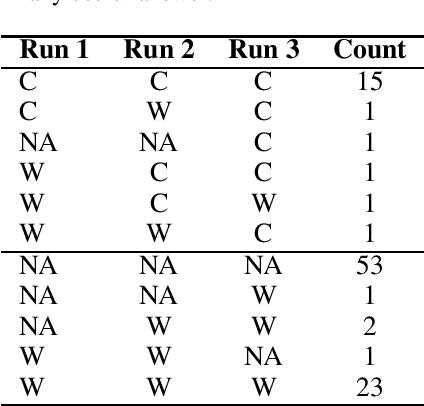Reham Omar
A Universal Question-Answering Platform for Knowledge Graphs
Mar 01, 2023Abstract:Knowledge from diverse application domains is organized as knowledge graphs (KGs) that are stored in RDF engines accessible in the web via SPARQL endpoints. Expressing a well-formed SPARQL query requires information about the graph structure and the exact URIs of its components, which is impractical for the average user. Question answering (QA) systems assist by translating natural language questions to SPARQL. Existing QA systems are typically based on application-specific human-curated rules, or require prior information, expensive pre-processing and model adaptation for each targeted KG. Therefore, they are hard to generalize to a broad set of applications and KGs. In this paper, we propose KGQAn, a universal QA system that does not need to be tailored to each target KG. Instead of curated rules, KGQAn introduces a novel formalization of question understanding as a text generation problem to convert a question into an intermediate abstract representation via a neural sequence-to-sequence model. We also develop a just-in-time linker that maps at query time the abstract representation to a SPARQL query for a specific KG, using only the publicly accessible APIs and the existing indices of the RDF store, without requiring any pre-processing. Our experiments with several real KGs demonstrate that KGQAn is easily deployed and outperforms by a large margin the state-of-the-art in terms of quality of answers and processing time, especially for arbitrary KGs, unseen during the training.
ChatGPT versus Traditional Question Answering for Knowledge Graphs: Current Status and Future Directions Towards Knowledge Graph Chatbots
Feb 08, 2023



Abstract:Conversational AI and Question-Answering systems (QASs) for knowledge graphs (KGs) are both emerging research areas: they empower users with natural language interfaces for extracting information easily and effectively. Conversational AI simulates conversations with humans; however, it is limited by the data captured in the training datasets. In contrast, QASs retrieve the most recent information from a KG by understanding and translating the natural language question into a formal query supported by the database engine. In this paper, we present a comprehensive study of the characteristics of the existing alternatives towards combining both worlds into novel KG chatbots. Our framework compares two representative conversational models, ChatGPT and Galactica, against KGQAN, the current state-of-the-art QAS. We conduct a thorough evaluation using four real KGs across various application domains to identify the current limitations of each category of systems. Based on our findings, we propose open research opportunities to empower QASs with chatbot capabilities for KGs. All benchmarks and all raw results are available1 for further analysis.
 Add to Chrome
Add to Chrome Add to Firefox
Add to Firefox Add to Edge
Add to Edge